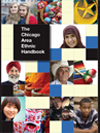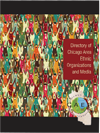-
The people next store
By Fred L. Gardaphe

Between 1920 and 1950, the number of Italians immigrating to the United States diminished each year. No longer were Italians leaving their homeland by the thousands. Living conditions in Italy had greatly improved since the late 19th century; the U.S. government was limiting the number of people who could immigrate to America from any one country; and Mussolini prohibited it. However, the end of World War II brought a new wave of Italian immigration, and these immigrants would change the definition of Italian America.
For us, the children and grandchildren of the first major wave of Italian immigration, these new arrivals came as the enemy we had defeated, the people we had liberated. They came as our people, and most of us wanted nothing to do with them. But no matter what we wanted, their arrival would change our attitudes toward our own immigrant grandparents.
My grandparents never did fit into what I believed was American. I was often embarrassed by their mixture of Italian and English, especially when they would “speaka likea thisa” to me while I was with my non-Italian American friends. And whenever we would do something wrong, they would yell to us, “Look at that American!” as though being an American was something that shamed our family.
We finally became Americans when the Fazzolo family moved in next door. They were the new Italians, and even though our lives were separated only by a picket fence and a small garden the previous owners had neglected for years, we were worlds apart.
Until they moved in, whether or not we wanted it to be, we were Americaʼs Italians. In spite of the fact that our speech was only seasoned with the Italian that was our grandparentsʼ primary language, and that hamburgers and hot dogs had begun replacing lunches of “pasta e fagioli” or escarole and beans — we were still the Italians, if only because others saw us as having different names, noses, or skin color. But this all changed the day the Fazzolo family moved in next door.
It was early spring when their moving van pulled up outside our home. I was playing outside, pretending not to notice them as they carried boxes and furniture from the street onto their front porch. My mother yelled for me to lend them a hand, and I pretended not to hear her. She came out of our house, grabbed me by the arm, and dragged me over to where they had gathered to take a break. When my mother tried to speak to them in English, they could barely respond, and so Mr. Fazzolo asked if she spoke Italian. She tried, but she spoke a dialect that hadnʼt changed in over 30 years, which made them snicker and scratch their heads. As though in some form of retaliation, I decided it was OK to laugh and mock their broken English. I helped them only because my mother had forced me, and throughout the whole ordeal not a word passed between us.
These were the Italians who immigrated to America during the 1950s. We called them immigrants with wings, for they came to America in airplanes, unlike my grandparents, who had crossed the Atlantic in an overcrowded boat. These people came with a truck load of possessions, not like my grandparents who were lucky if they could carry along a cardboard suitcase or a sack stuffed with what they had to bring to America.
Youʼd have thought there would have been a natural affinity between the two groups of immigrants, but nothing could have been further from the truth. They came better-educated and with a greater knowledge of America than their turn-of-the-century predecessors. They had been prepared by years of association with American soldiers, and the subsequent media invasion of their culture. They arrived more like Americans, yet they remained quite different. To us they were the new greaseballs, and we wouldnʼt let them forget it.
It took a few years for the Fazzolos to become more like us, but in the process we were becoming more like them. Mrs. Fazzolo would send over samples of her homemade cooking. My grandfather worked with Mr. Fazzolo to triple his yearly production of wine. My grandmother joined Mrs. Fazzolo in their back yard to dry tomatoes into paste. Our neighbors rejuvenated my grandparentsʼ Italian and kept the sound alive so that later, when I finally decided to study my ancestral language, my pronunciation would be near perfect.
Years later, after I had learned Italian, I went back to my old neighborhood and spoke, for the first time, at length with the people next door in what I came to call “our language.” I learned that Mr. Fazzolo had been a “partigiano” during the war and had spent three years in a fascist prison until he was freed by Allied soldier. He told me of having witnessed the machine-gunning of innocent people by the Nazis; he told me of how his father had been shot by a firing squad; he told me of how his whole family had been driven out of their village for fear of their lives. And all that he told me made me ashamed of how we had treated them when they first moved into the house next door.
Essentially their immigration had created two types of Italian Americans. They maintained contact with Italy, and every few years took trips back. But as the years passed, and the trips grew fewer and farther between, the people next door eventually grew to be different from contemporary Italians so that if for some reason a new emigration had begun, our next-door neighbors would be viewed by the new immigrants as American.
This forced me to question just what it was that the whole experience of immigration to America could do to a human being. In our efforts to preserve an Italian-American culture, are we just preserving a memory that is frozen in time? For the people next door had a different memory of Italy than my grandparents, and than I have since Iʼve traveled back. It made me realize that with each wave of immigration the image of Italy changes, just as the experience of being American changes. In their own peculiar way, the people next door brought me closer to my Italian heritage, but only after I realized that my idea of being American was falsely rooted in trying to distance myself from them. For I thought, and wrongly so, that the only way for me to be American was to alienate the people next door.
Fred L. Gardaphe is a professor of English at Columbia College, and author of two books on Italian Americans.
Return to Links & Features
Available Now!
The
Chicago Area Ethnic
HandbookEasy-to-use chapters on the histories and traditions of
37 ethnic groups.
Second Edition
UPDATED and EXPANDED!

The Directory
of Chicago Area Ethnic Organizations
and Media Who they are, what they do and how to reach them.
Third Edition



